Kidney Failure Treatment
Kidney Disease in Cats
Although most cases of chronic kidney disease (CKD) occur exclusively in felines older than 9 years old, cats often begin developing the disease unnoticed years before the symptoms begin and kidney disease treatment is pursued. Diseases afflicting the kidneys, whether they be chronic or acute in nature, should always be given serious attention and treatment.
Once symptoms are spotted and the disease is confirmed by a board-certified veterinarian, appropriate kidney failure treatment will need to be strategically planned by a vet as soon as possible.
Specific tests of protein and creatinine levels in the urine will be analyzed in order to determine the kidney disease stages. Ranging from Stage 1 (least serious) to Stage 4 (most serious), the feline will be assigned one of these kidney disease stages, and treatment will proceed from there onward.
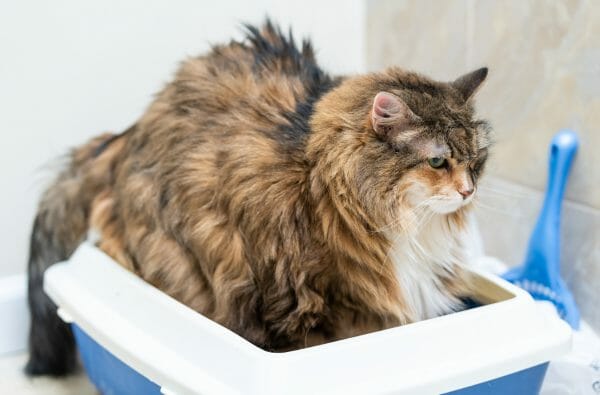
It is essential for owners to keep in mind that kidney disease is common, occurring in one-third of elderly felines. Because of how vital the kidneys are to overall health, kidney screenings early in life are highly advised. This is especially true given the fact most symptoms remain concealed until old age.
By the time symptoms begin outwardly displaying themselves, more than 70% of the kidneys are deemed ineffective. For this reason, the reality of a CKD diagnosis and possible kidney failure treatment costs should be kept in consideration when buying a cat.
Why are Kidneys Important?
The kidneys are vitally important to the well-being of a cat. Kidneys work in the body to dispose of toxic waste from the bloodstream via urination. Potassium, sodium, and other minerals are kept balanced by the kidneys. They also keep a feline hydrated and its fluids stabilized. Kidney disease treatment is critical to preserve these important functions.
Kidneys also help in bringing about red blood cell formation, keeping blood pressure within a healthy range, and nourishing the bones through regulation of essential vitamins. As anyone can see, when the kidneys begin malfunctioning, innumerable issues can arise and treatment is necessary.
Chronic Kidney Disease Signs in Cats
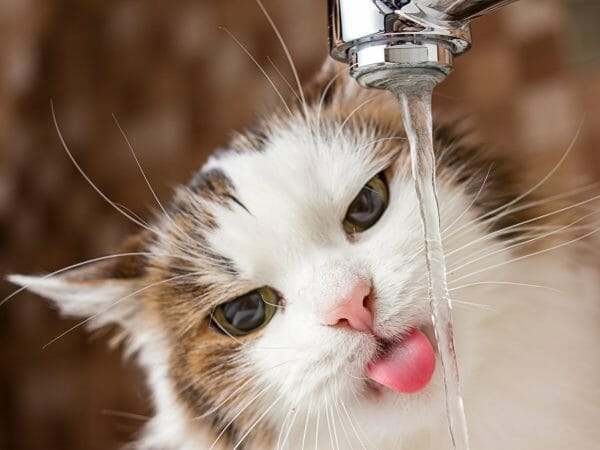
The distinct stages of kidney disease are usually based on how many symptoms are observed. Therefore, the more symptoms that are present, the more evolved the kidney disease is assumed to be. Owners should be aware that if these symptoms are seen, the kidney disease is already far along in its progression. Kidney disease treatment interventions are therefore urgent.
A number of the tell-tale signs of chronic kidney disease in cats are:
- Consistent dehydration
- Constant need to urinate
- Low energy
- Weakness
- Diarrhea and/or vomiting
- Pain in the abdomen
- Lack of regular appetite
- Loss of weight
Even more, with cat kidney disease, meowing that sounds strained or is done consistently may be a signal that a feline is in pain. It is also important to also keep an eye on a feline’s gait. Because of the deficiency in blood count experienced with cat kidney failure (which is also one of the causes of anemia), back legs give out due to weakness. Because the symptoms associated with chronic kidney disease can mimic countless other health conditions (including FIV), a physical examination by a vet will be required to rule out any other possible explanations.
Common Kidney Disease Causes
Kidney diseases can have their root in various origins, from infections to cancer. Due to this fact, aging felines should receive routine check-ups and examinations of their kidneys to make sure they are functioning normally.
Here are some of the recurrently seen sources of chronic kidney disease in cats:
- Congenital birth defects of the kidneys
- Hypertension
- Diseases originating in the immune system
- The digestion of toxins or poisons (which often result in kidney toxicity)
- Kidney stones
- Bacterial or viral infection of the kidneys (pyelonephritis)
- Tumors on the kidneys (neoplasia)
- Polycystic kidney disease
If any of these situations are present, the cat should be taken to a vet to receive an examination and get bloodwork done to be sure these situations are not resulting in CKD. If CKD is spotted, kidney disease treatment will need to be started immediately.
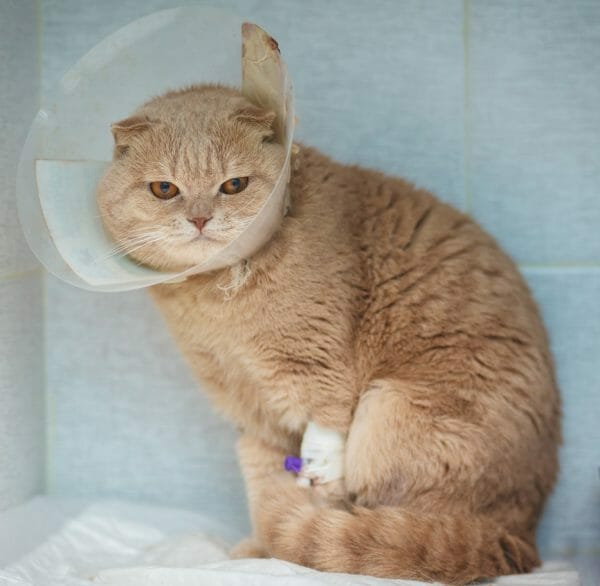
Diagnosis and Treatment of Cats with CKD
If elderly cat kidney failure symptoms are being observed in close frequency, a vet should be made aware of it without delay.
When a vet attempts to diagnose a disease of the kidney, blood test results can be one of the most reliable indicators of CKD. If a low blood count is found, this brings the vet one step closer to a CKD diagnosis. Besides this, some vets may utilize X-rays, electrolyte panels, abdomen ultrasounds, and protein-creatinine ratio tests to pinpoint the CKD and what stage it may be in.
Once a diagnosis of CKD has officially been made, kidney disease treatment personalized to the feline will be decided upon with the owner’s commitment to the feline’s health and the vet’s expertise.
Treatment Options for Chronic Kidney Disease
Once a feline has received a diagnosis of chronic kidney disease, the vet must work quickly to determine the best treatment option based on the symptoms being seen and other preexisting conditions.
Because there is no single cure for CKD, the symptoms must be more so addressed than the cause itself. The goal, therefore, of kidney disease treatment is to reduce the stress and work that kidneys normally experience. This can be accomplished through:
- Replacing nutrients the kidneys are unable to produce by themselves.
- Limiting the amount of toxins that the kidneys have to pass out of the body.
- Diets, medications, and even surgery are also sometimes required to give the kidneys a break as much as possible.
Diets for Cats with Chronic Kidney Disease
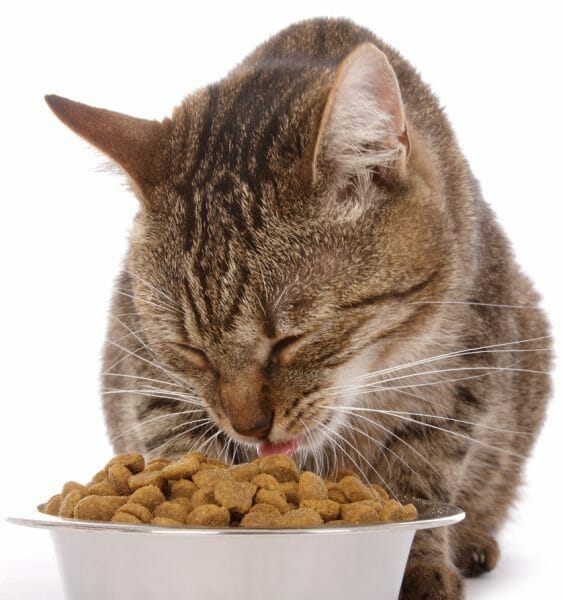
A cat kidney disease diet is planned out for a feline dealing with CKD. Due to the kidneys not working as they should, they are unable to process the vitamins and minerals from the foods normally consumed.
Because of this, these felines must be limited in their intake of foods high in phosphorous and proteins. Identifying the correct kidney diet is a critical piece of kidney disease treatment.
There are many brands offering the best kibble to supplement kidney diets. According to many veterinarians, one of the best diets available is the Royal Canin cat kidney diet. The Royal Canin kibble is meant to be used intermittently. It is a premium product that has the appearance, texture, and aroma of normal kibble. This kind of diet can easily help felines newly diagnosed with CKD transition to a new diet.
Chronic Kidney Disease Medication
Although some felines have advanced cases of chronic kidney disease that requires hospitalization, a majority of minor cases may be treated in the comfort of the home. Cat kidney infection antibiotics are sometimes all that is needed to keep the animal stable. To address the nutrients and fluids lacking, daily sodium chloride subcutaneous fluids can be administered by the owner.
Chronic kidney disease can have its origin in an infection in the kidneys. This can be brought on through the contraction of a virus or bacteria growing in the urinary tract. This will warrant a cat kidney infection treatment decided upon by the vet. Some frequently used antibiotic interventions are:
- Amoxicillin (Clavamox or Augmentin)
- Enrofloxacin (Baytril)
- Marbofloxacin (Zeniquin)
- Pradofloxacin (Veraflox)
- Cefovecin (Convenia)
- Metronidazole (Flagyl)
- Clindamycin (Antirobe)
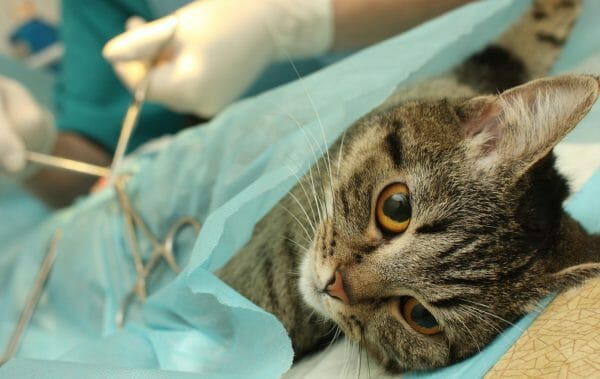
Surgical Procedures for Chronic Kidney Disease
For felines experiencing excruciating symptoms, surgery may be offered as a treatment option. However, surgeries done in this region can be risky and may be further harm the kidneys. For this reason alone, surgery is usually reserved for life-threatening cases of CKD.
Cat kidney stone surgery is one of the main surgeries used a kidney disease treatment. Felines with accumulated kidney stones may be in urgent need of surgery to remove them if they are unable to be dissolved. If the CKD is serious enough, the vet may suggest a cat kidney transplant.
In any situation, a veterinarian is the best source of knowledge in keeping a feline as healthy as possible. Although articles like this can be wonderful resources, it will never replace the personalized expertise offered by a qualified vet. Whether it be diagnosis, treatment, or advice, a vet should be, first and foremost, the primary source of information.




